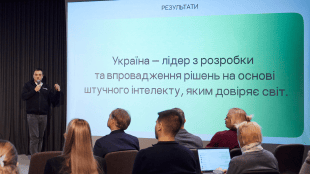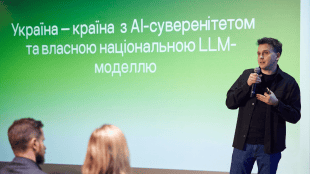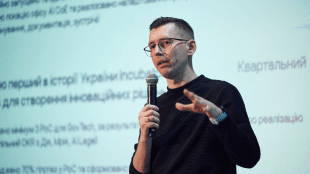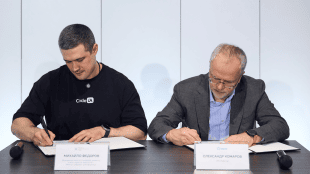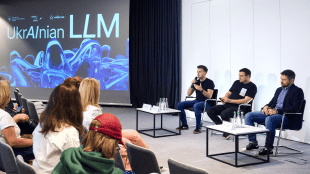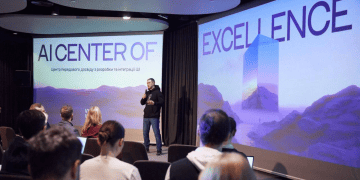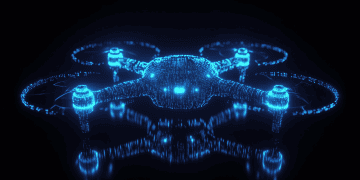- Direction:
- GovTech
Why Does Ukraine Need Its Own LLM?
- Authors
- Mykhailo Fedorov
- Publication date and time:
- Reading time:
- 3 min
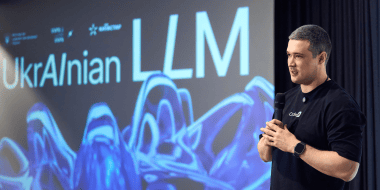
National Neural Network and AI Development Plans to 2030
By Mykhailo Fedorov, Vice Prime Minister for Innovation, Education, Science and Technology Development — Minister of Digital Transformation of Ukraine
AI has sparked a revolution that has reshaped the world just as the internet once did. Today, every company must become an AI company, and every government must be an AI‑powered government. In this global race, Ukraine needs a seat at the table to drive its economy, develop indigenous weapons and education systems, and strengthen defense capabilities.
Ambitious AI Goals by 2030
Ukraine has set a bold target: by 2030, become one of the top three countries globally in AI development and in integrating AI into the public sector, from governance to defense. We are already laying a strong foundation to build innovative products comparable to those created by Mistral AI and OpenAI.
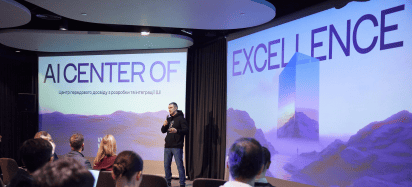
The Role of WINWIN AI Center of Excellence
To realize this vision, we established the WINWIN AI Center of Excellence, aligned with Ukraine’s 2030 Global Innovation Strategy WINWIN. This Center will not only foster AI domestically but also position Ukraine as a significant player in the global AI market.
Such Centers of Excellence are rare worldwide, typically spearheaded by tech giants integrating AI into their products. Ukraine now has its own, tasked with embedding AI throughout the entire state, not just within a single company.
Already, we have AI-powered tools ready or about to launch. Chief among them is an AI assistant on the Diia portal designed to streamline access to public services — a major leap for our digital state. The Ministry of Digital Transformation is also deploying AI tools for analyzing regulatory acts and translating European legislation, integrating AI into the MRIIA platform, and developing internal AI tools. Naturally, we’re incorporating AI into defense tech as well.
Separately, we are drafting Ukraine’s National AI Strategy, which we aim to complete by year-end. This ambitious roadmap is intended to clearly articulate our priorities and solutions.
- Active slide number
- 1
- Total slides
- 4
Sovereign LLM: Why Ukraine Needs Its Own Model
Our next crucial move is deploying a sovereign LLM. This neural network, modeled after the human brain, is capable of understanding, analyzing, generating text, translating, and even writing code. It is the technology underpinning services like ChatGPT, AI assistants, chatbots, and voice agents.
First, a domestic LLM allows us to run services without storing data abroad or in insecure jurisdictions—we will keep everything on our own infrastructure.
Second, defense-tech stands to benefit greatly. Ukraine is collecting uniquely rich battlefield data—unlike any other nation—and can leverage an LLM to process it and generate battlefield insights. This is critical from a security perspective.
Our National LLM will be trained on Ukrainian data—history, scientific research, library collections, and other public-sourced materials. Official data will also be included, excluding any sensitive information. Crucially, this will all be done in accordance with IP laws. Authors will also have the option to donate their works to enrich the model with authentic Ukrainian context.
Third, the LLM will be available to public institutions and businesses to create products and services, advancing both the public and private sectors.
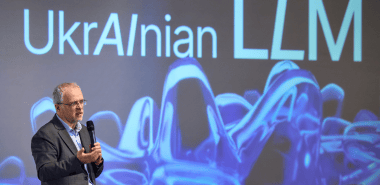
Building the National LLM: Team, Stages, and Partners
Creating a sovereign LLM is a complex technological endeavor — data processing, model training, and supercomputer usage — and it requires investment, time, and expertise. That’s why we need a partner with both technical and financial capacity: Kyivstar, the largest Ukrainian mobile operator.
Structured collaboration includes:
- A Coordination Committee oversees vision and strategy.
- A Technical Board manages architecture, data, and model training.
- An Ethics Board ensuring rigorous oversight on� data usage and ethical considerations, critical in our information age.
- Active slide number
- 1
- Total slides
- 2
Kyivstar, as the operational lead, will form a project office, recruit the team, provide computing resources for preliminary model training, and finance the entire LLM development. Importantly, no state budget funds are being used.
Together, our goal is to build a high‑quality, scalable model within approximately nine months.
Post-launch, the model will be accessible to government bodies, research and educational institutions, and civic organizations. After a testing phase, it will be open-sourced—available for businesses and developers to use and build upon.

